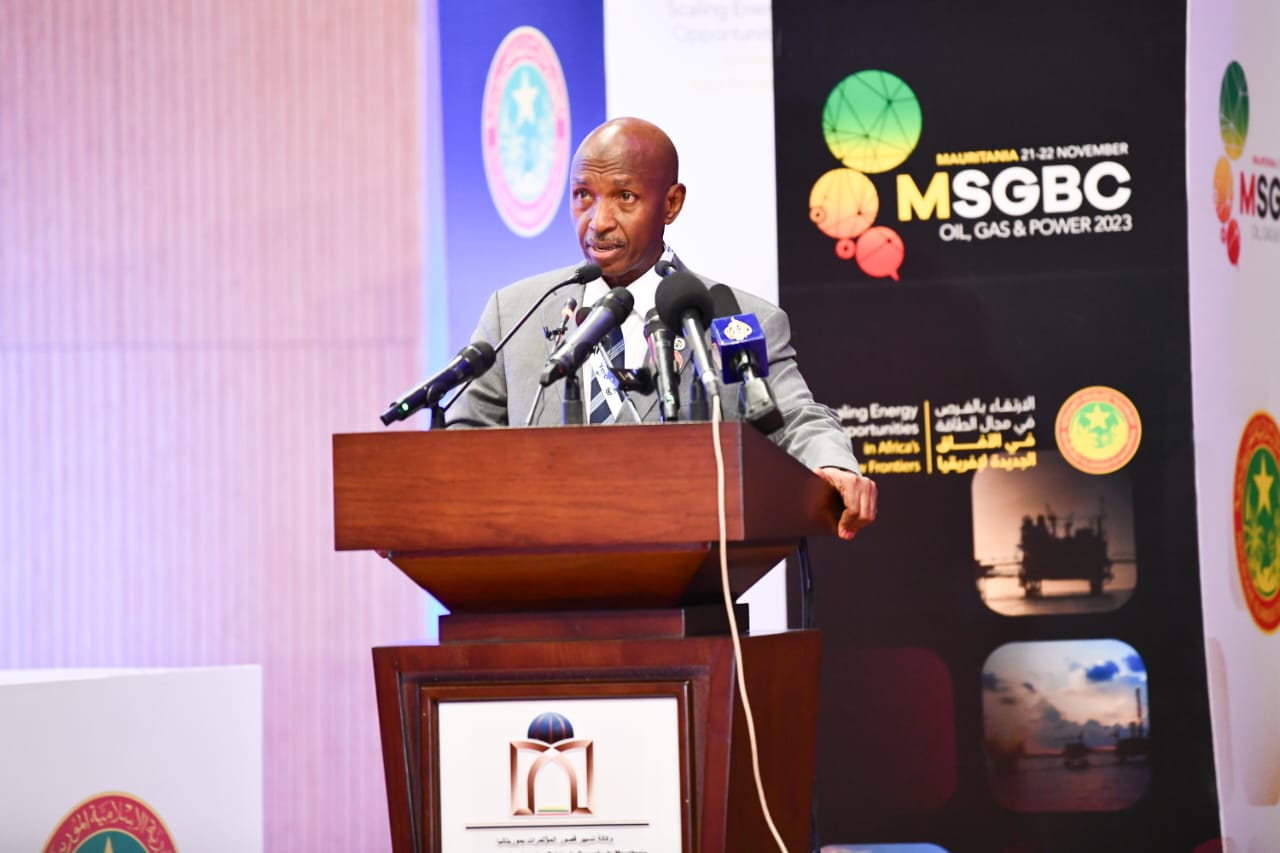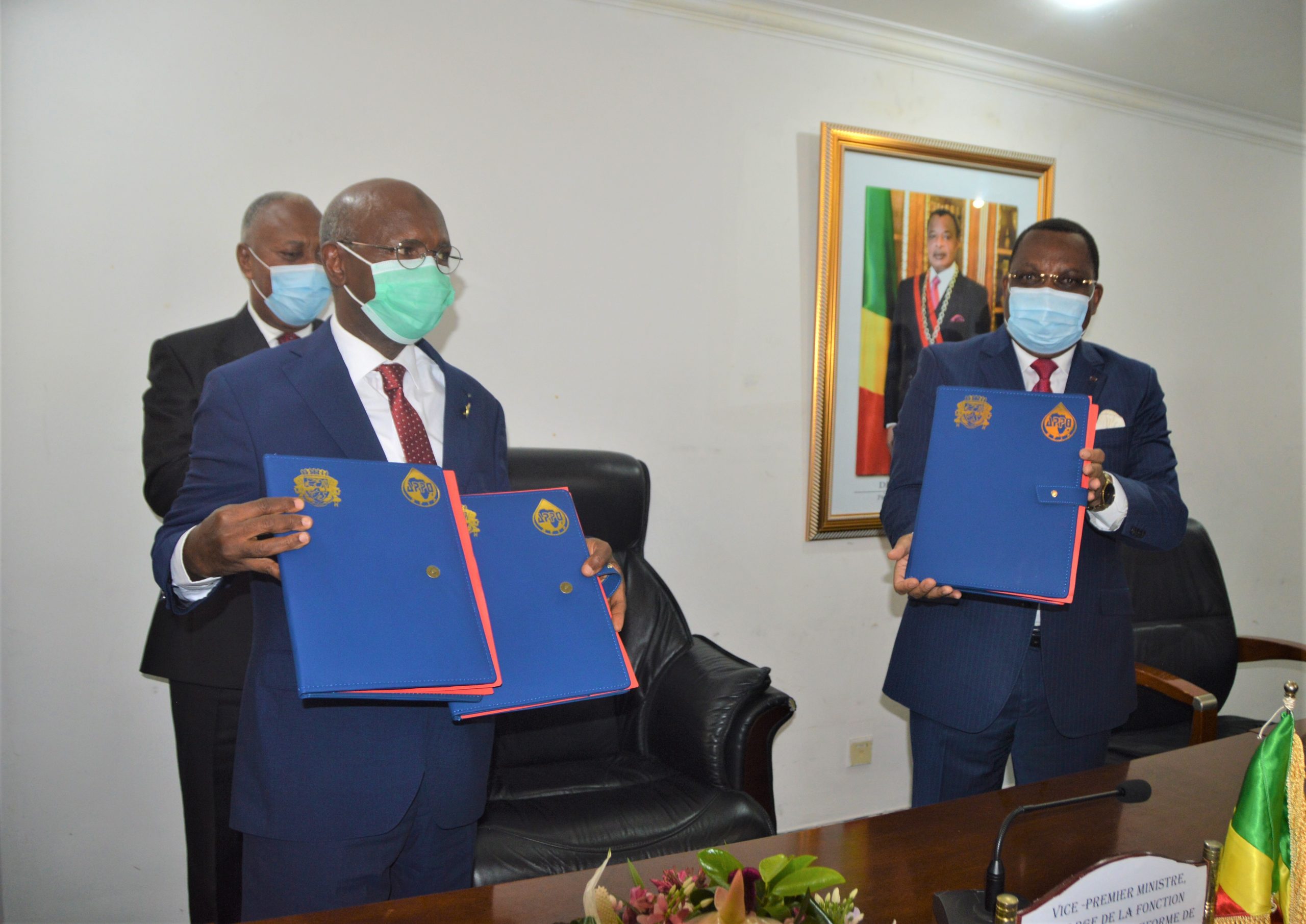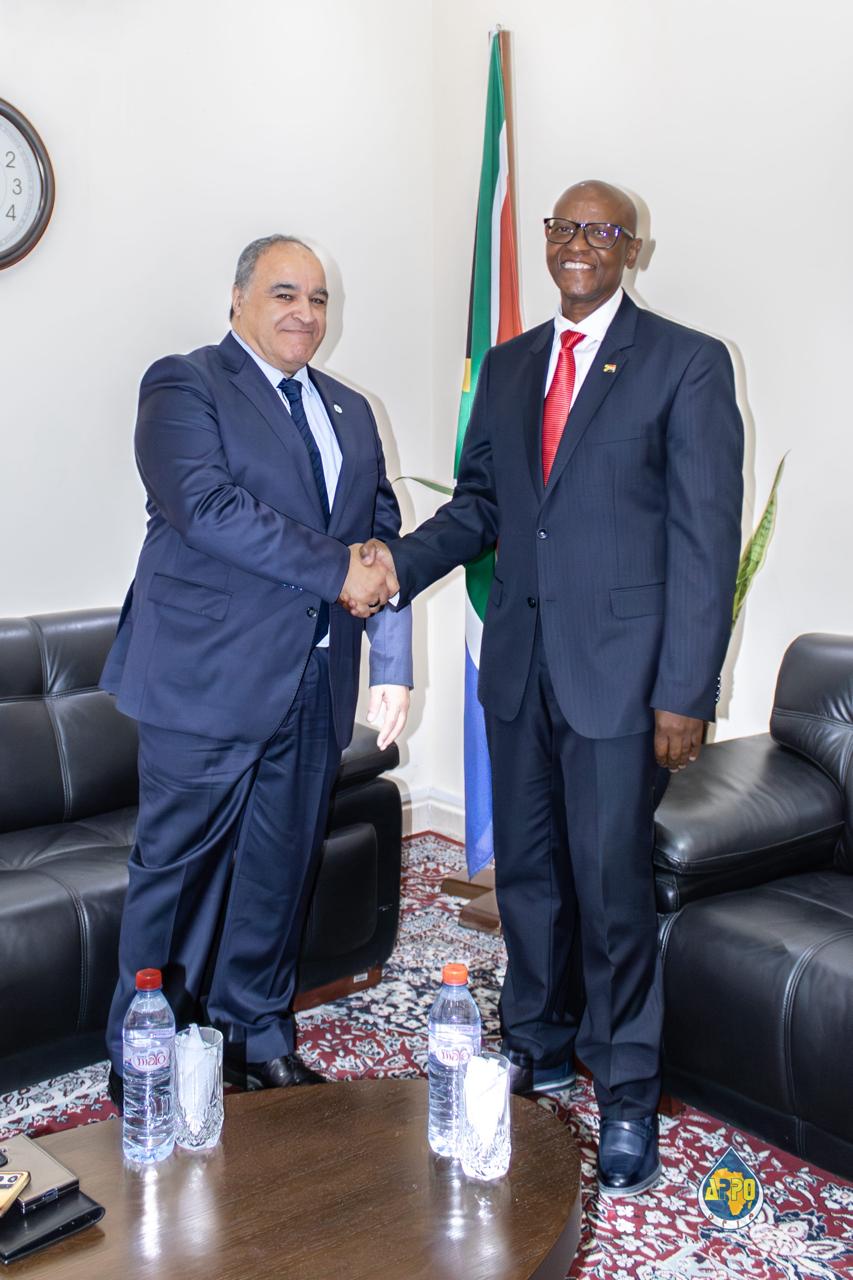A Speech Delivered by His Excellency Dr. Omar Farouk Ibrahim, Secretary General of the Africa Petroleum Producers’ Organization, APPO, at the Africa Gas Innovation Summit, organized by the Society of Petroleum Engineers
Abuja, Wednesday 18 June 2025
- Protocols:
- I should like to begin by expressing my personal appreciation and that of the Organization I represent, the African Petroleum Producers’ Organization, APPO, to the Society of Petroleum Engineers Nigeria Council for the invitation to share our thoughts with this distinguished audience. on a theme of central imporatnce for the African continent and its people.
- While I commend the organizers for the theme of the Summit, Building a Resilient African Gas Economy Through Innovation and Collaboration, I am not so sure that I can say the same for the topic I have been asked to deliver my keynote address on. The reason is simple. To any discerning mind, the way questions, topics or themes are framed tells you the orientation of the framer. Let me explain. The topic I have been requested to speak on is Shaping Africa’s Gas Sector for Global Integration. Implicit in this topic is that the organizers want me to come up with ideas on how to further integrate the African gas sector into the global gas industry. Of course, the premise of this topic is that we live an in interdependent world, where no nation is an island on its its own. The other day at a conference I heard someone passionately argue that the world is so interdependent that whatever the US or Europe or China does has a huge impact on us and vice versa. That is what many of us are made made to believe. I agree that what the US, Europe or China does have huge impact on us. But does what we, individual African countries, do have huge impacts on any of these economies?
- To me there are concepts and phrases deliberately developed by others to mask the reality of an unequal world, which our elites, in academia, media, politics and business, have come to uncritically accept, and even more dangeroulsy, popularize among the people, thus further perpetuating an illusion of equity. That is why I am not so comfortable with the global integration part of your topic.
- Lest I be misunterstood. We are not denying the reality of a global village and a global market. It is the reality. But are we supposed to promote this unjust reality and thereby perpetuate it, wittingly or wittingly? I will argue that our focus in Africa should, at least for now, be Africa, because true interdependence can only be found among equals or near-equals. Anything else is called dependence.
- And the way to bridge the gap is to have a new paradigm shift in the way we have related with the countries of the North who have come to see us primarily as producers of raw materials and consumers of manufactured goods and services.
- Excellencies, ladies and gentlemen, for too long we have been made to believe that we are too poor to access the energy that God has endowed us with. We are made to believe that it is in our best interest to export our energy to get foreighn exchange with which to buy foreign goods and services. That is why we see nothing wrong with a continent that has the uneviable record of being home to the largest proportion of the world’s population living without access to modern energy exporting 45% of its gas and 75% of its crude oil to other continents. We have failed to underdstand that access to energy is a sine qua non to economic and social development. Show me one industrial country that made it without making energy accessible to a vast majority of its population?
- Let me demonstrate with some practical examples. Our country, Nigeria, with a population of over 230 million and a land size of nearly a million square kilometers has a total gas pipeline network of 7,000 kilometers, and another 5,000 kilometers of crude oil, making a total of 12,000 kilometers. In contrast, France with a population of 68 million and land size of a little more than half tyat of Nigeria has gas pipeline of 37,000 kilometers and oil pipeline of 8,000 kilometers making a total of 45 kilometers. Put differently while every kilometer of pipeline in France serves 1,511 people, in Nigeria a kilometer serves 19,166 people. Territorially, the ratio is even worse 1:12 for France and 1:77 for Nigeria. The pattern is not different from what obtains in other developed countries.
- At the continental level the story is not much different especially if one focuses on Sub-Saharan Africa. North Africa -comprising Algeria, Egypt, Libya, Morocco and Tunisia – is a different story. With a continent-wide proven gas reserves of over 600 trillion cubic feet and still growing, the continent has just over 30,000 kilometres of operational gas transmission pipelines, most of which is concentrated in North Africa. Algeria alone accounts for over 13,000 km. In stark contrast, Europe operates over 227,000 km of pipeline, or more than seven times what the whole of Africa has. It is important to remember that Europe is about a third of the size of Africa.
- While some may want to remind me that Africa has some 24,000 km of gas pipeline projects in development, I would respond that less than 10% of this figure are under active construction. The remaining projects are still in proposal stage. Furthermore, out of a projected capital requirement of $89 billion, only $4 billion is currently committed to projects being built, while a staggering $85 billion remains tied to proposed projects with uncertain timelines. This is a severe bottleneck and a clear call to action. If we are genuinely committed to building a resilient gas economy, then infrastructure investment must take centre stage. New ways of addressing challenges must be tried. And this is exactly what APPO has been doing in the last few years since the reform.
- Excellencies ladies and gentlemen, I had called for a paradgim shift in the way the African oil and gas industry has sought to address the emerging challenges from the global energy transition. In APPO, we conducted a major study on the future of the oil and gas industry in Africa in the light of the energy transition, and we came to the undeniable conclusion that Africa needs to take its destiny in its own hands and stop relying on outsiders. Having identified three imminentc challenges that energy transiton poses to the African oil and gas industry, namely finance, technology and markets, we decided to look for new ways to address these new challenges.
- To address the finance challenge, we went into partnership with Afreximbank to found the Africa Energy Bank, with headquarters here in Abuja. As most of you may be aware, legally the Bank is alive as we have gone beyond an Agreement to having an international treaty in force, with the signing and ratification of the Establishment Agreement and Charter of the Bank by the minimum number of APPO Member countries. We have also advertised the position of the President and very soon shall advertise the other positions. Nigeria is working hard to make available to us the Bank’s Headquarters, very soon. As soon as it is ready, the bank shall be formally launched.
- On the challenge of technology, we are working on pooling the resources of our member countries, both public and private to establish regional centers of excellence in the various sectors of the oil and gas industry. The currrent practice where our countries pursue industry technology acquisition and capacity development in silos, each having oil and gas research and development institutitons as well as oil and gas training institutions have not yielded the desired results. For general research and training of middle and high level manpowers, they are suitable. But for breakthrough researches and innovations, we need to pool resources together to pursue common goals. We have therefore created the forum of APPO NOC CEOs, Forum of Directors of APPO Oil and Gas Research, Development and Innovation Centers and Forum of Directors of Oil and Gas Training Institutions. With time, we will bring on board the private sector sector players into these fora. Our objective is have regional and continental oil and gas training, research, development and innovation institutions.
- On the challenge of markets, APPO understands that central to developing energy market is the provision of energy infrastructure, in particular, pipelines and depots. As a result we partnered with the Central Africa Business Energy Forum, CABEF, to work on the provision of energy infrastructure, more precisely, creating a comprehensive network of pipelines to link 11 Central African States by gas, products and crude oil. I am pleased to announce that a couple of weeks ago, APPO, CABEF and CEMAC agreed on the documents to be presentetd to the Summit of Heads of State of CEMAC.
- Excellencies, ladies and gentlemen, when Africa has addressed these three critical challenges, and is able to fund to a large degree its oil and gas projects, substantially reduce dependence on oil and gas technology and expertise, and create a sustainable market fir its energy, we will be better prepared for global gas market integration. Until then, we will only be perpetuating an unequal and exploitative relationship, characterised by dependence not interdependence.
- I thank you for your kind attention.



